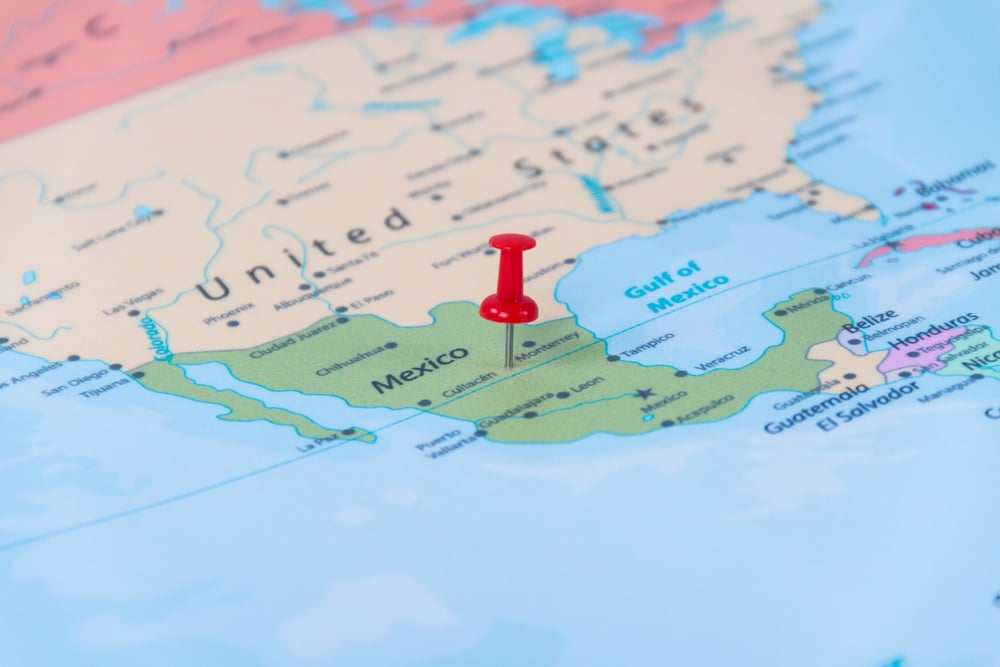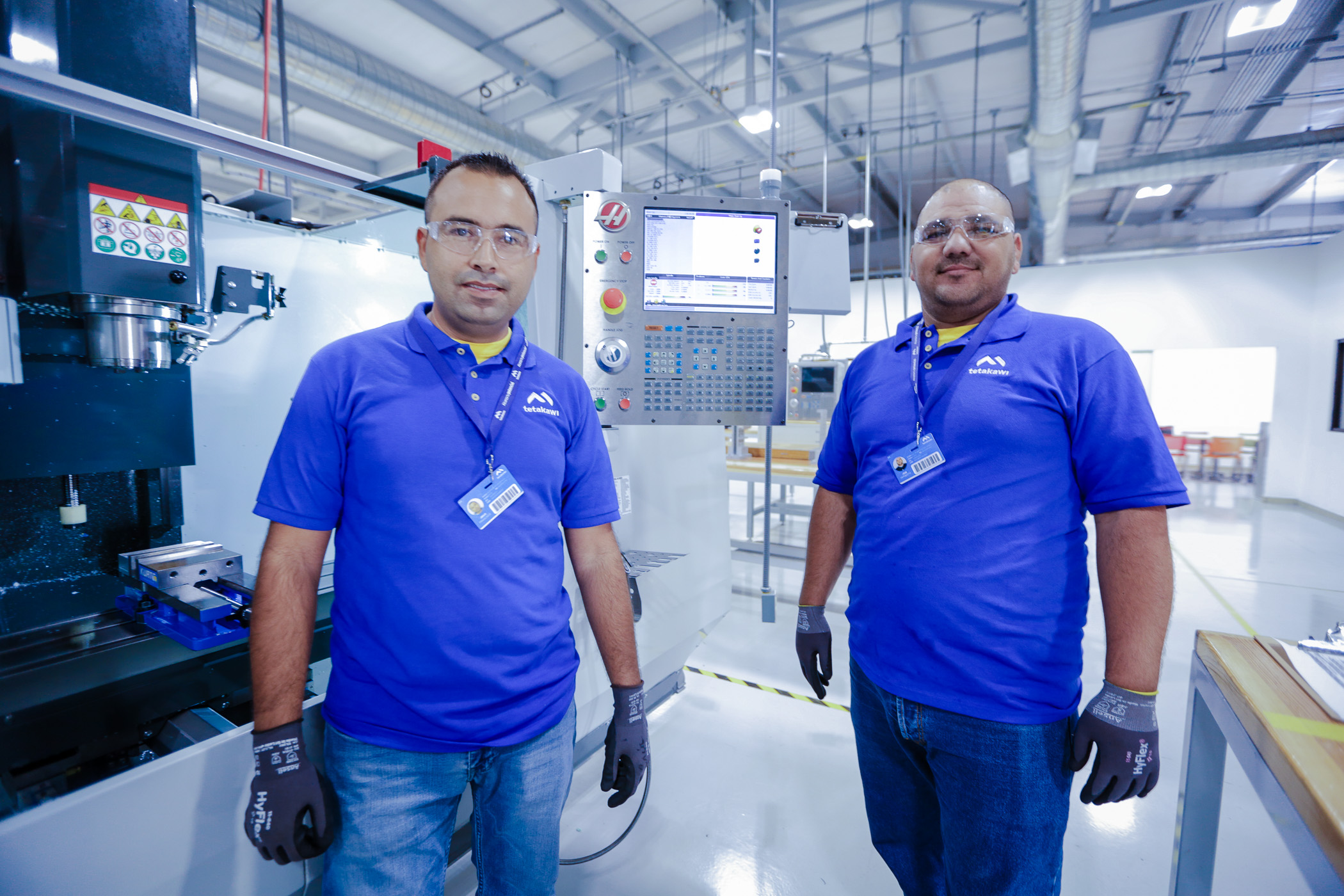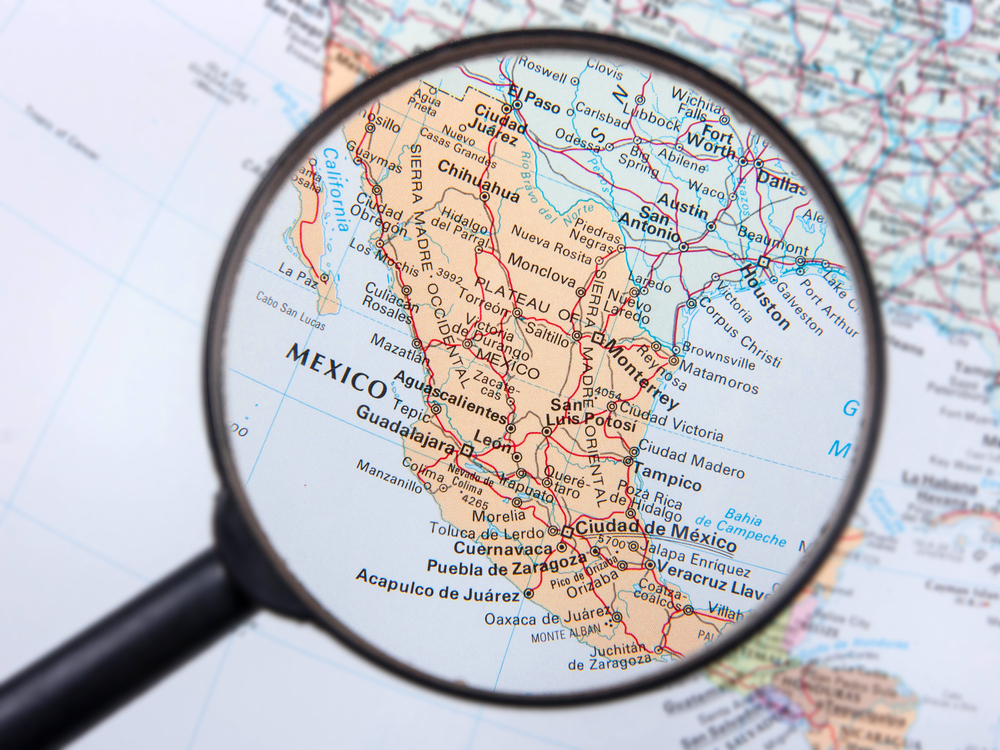Textile manufacturing has a rich history in Mexico – and a strong future. As of 2023, Mexico was the 8th largest textile exporter in the world. In 2021, Mexico exported more than $4.3 billion in apparel alone. When accounting for fabrics, yarns, and other textile types, Mexico’s exports are closer to $7 billion yearly. Mexico’s textile industry stretches across many states within the northern and central parts of the country.
Many of these fabrics, yarns, apparel, and other industrial textiles are shipped across the border to the world’s largest consumer of textiles, the United States. This U.S. demand for Mexico’s fabrics and materials continues to grow as more manufacturers move away from China, long a leader in textile exports, due to the undeniable advantages of nearshoring. These advantages include lower shipping costs, faster speed to market, and a dense supply chain that supports Mexico’s robust textile industry.
Workforce development plays a pivotal role in Mexico's thriving textile manufacturing industry, ensuring a skilled and adaptable labor force capable of meeting the evolving demands of global markets. With a rich history in textile production dating back to the 19th century, Mexico has cultivated a workforce steeped in tradition yet open to innovation.
Today, efforts in workforce development focus on equipping workers with the technical expertise needed to operate modern machinery and utilize advanced manufacturing techniques. Training programs, both within companies and through government initiatives, aim to enhance skills in areas such as textile design, machinery operation, quality control, and supply chain management.
By investing in workforce development, Mexico's textile industry not only sustains its competitive edge but also fosters a culture of continuous learning and improvement, driving innovation and growth in the sector. Below, we explain how Mexico’s textile manufacturers support diverse global brands, where these leading textile manufacturing companies are located, and how to position your company within this established sector.
Weaving History with Modern Threads: Mexico's Textile Export Evolution
Textile production in Mexico boasts a lineage steeped in history and innovation, stretching back to the early days when a cotton textile factory was established in Puebla in the 1830s. Over the years, as global fashions evolved, so too did the Mexican textile industry, adapting and advancing in kind. Today, this sector is a tapestry of traditional techniques interlaced with modern technology, where manufacturers deftly work with both synthetic and natural fibers to create textiles for a wide array of uses—from chic apparel to the upholstery that adorns our homes and vehicles, and even specialized materials for industrial applications.
The historical expertise cultivated over centuries now enables Mexican textile producers to significantly heighten their speed-to-market—a critical advantage in the fast-paced world of fashion. This agility is crucial for apparel producers and retailers aiming to sidestep the pitfalls of overstocking and to enhance the likelihood of full-price sell-through.
The inception of the United States-Mexico-Canada Agreement (USMCA) has further refined the landscape for textile production and export. With its rigorous provisions, USMCA restricts the use of certain non-NAFTA inputs, fostering a more beneficial environment for manufacturing within Mexico. The agreement necessitates key components like sewing thread, pocketing fabric, narrow elastic bands, and coated fabric, integral to apparel and other finished goods, to be produced within the region to enjoy trade benefits. These strategic changes have not only bolstered Mexico's position as a cost-effective alternative to Asian suppliers but have also spurred the expansion of the local supply chain, enhancing support for the nation’s textile manufacturing and export capacity.
Reflecting on the past, it’s clear that Mexico’s export of vibrant serapes and finely woven textiles began long before these modern developments, finding their way through historic trade routes to markets around the world. The legacy of these early exports has set the stage for today's global trade, with Mexican textiles being more than just commodities—they are carriers of culture, craftsmanship, and innovation.
As the industry forges ahead, it carries the essence of its rich heritage into a future where Mexican textiles are not only a symbol of national pride but also a competitive player on the international stage. The story of Mexico's textile exports is one of enduring resilience, adaptability, and forward-thinking—a narrative that continues to unfold as the industry weaves new opportunities in the global market fabric.
Where to find Mexico’s textile manufacturers
Much of Mexico’s textile industry is concentrated in the central and northeastern parts of the country. Concentrations can be found in Puebla, Mexico City, and the states of Mexico, Hidalgo, Tlaxcala, Jalisco, Queretaro, Coahuila, Sonora Guanajuato, Nuevo Leon, and San Luis Potosi.
The types of textiles created and the industries they’re being made to serve may influence companies’ decisions as to where to locate them. For example, Guanajuato and Jalisco are well-known for leather production and footwear. Puebla remains the center of textile manufacturing. However, thanks to the Volkswagen plant located in the city, many of the textiles produced today are developed for use in the automotive industry.
How Mexico serves the three types of textile industry
The textile industry has become highly diverse, encompassing yarns, fabrics, and finished products incorporated into a wide range of product types. Mexico is home to companies that produce textiles serving several types of textile industries, including:
- Apparel: From footwear to denim to knitwear and everything in between, Mexico’s fashion industry has a large amount of material for the U.S. market. Research firm TechNavio predicts that the $4 billion in growth it’s projecting for Mexico’s textiles industry between 2021 and 2026 will largely be attributed to growing fashion demands.
- Industrial textiles: From airbags and automotive seats to the high-performance fibers used in medical implants to the strict technical belts used for conveyors, printer ribbons, and drive belts – textiles are integrated into many of Mexico’s other industrial sectors.
- Furniture: The Mexican factories of furniture companies like La-Z-Boy, AG Furniture Manufacturer, and G Hospitality Furnishing all benefit from local suppliers. Mexico’s prosperous textile manufacturing industry means furniture producers like these can easily access a wealth of upholstery options.
Top textile manufacturing companies in Mexico
Mexico is home to several top textile manufacturing companies, many of which serve today’s most prominent fashion and home furnishings brands. Some of the largest textile manufacturers in Mexico include:
- Toray Industries: One of the largest textile manufacturers in the world, Toray operates across 29 countries. The Japanese company produces the fabrics used to make airbags from its facility in Jalisco, Mexico.
- VF Corporation: The multibillion-dollar producer of Timberland, North Face, and other brands of outdoor, active, and work apparel has a facility in Yucatan, Mexico.
- Grupo Kaltex: This Mexico City-based textile company manufactures acrylic fibers, yarn, and fabrics, as well as apparel and material for home furnishings. The company employs 18,000 people across the Americas and exports its goods worldwide.
- Suminoe Textile Mexico: From its plant in Guanajuato, this Japan-based textile manufacturer produces carpets, floor mats, and seat fabrics incorporated into various vehicles.
- Grupo Denim: This Mexican company has developed the denim fabric incorporated into products sold by Lee, Wrangler, Eddie Bauer, Bass Pro Shops, and leading brands.
An industry poised for growth
Textiles and apparel manufacturing are part of an industry with tremendous growth opportunities. As nearshoring becomes a more central part of companies’ growth strategies, we predict this sector will benefit tremendously from the support Mexico offers its foreign investors across various industries.
Companies can best support apparel, automotive, medical device, and other textile users by locating their factories near an economic cluster serving their targeted industry. Companies can leverage the benefits of an existing supply chain and experienced workers through careful site selection. For assistance in positioning your factory in Mexico for success, contact Tetakawi today.
Subscribe
Sign up and stay informed with tips, updates, and best practices for manufacturing in Mexico.






